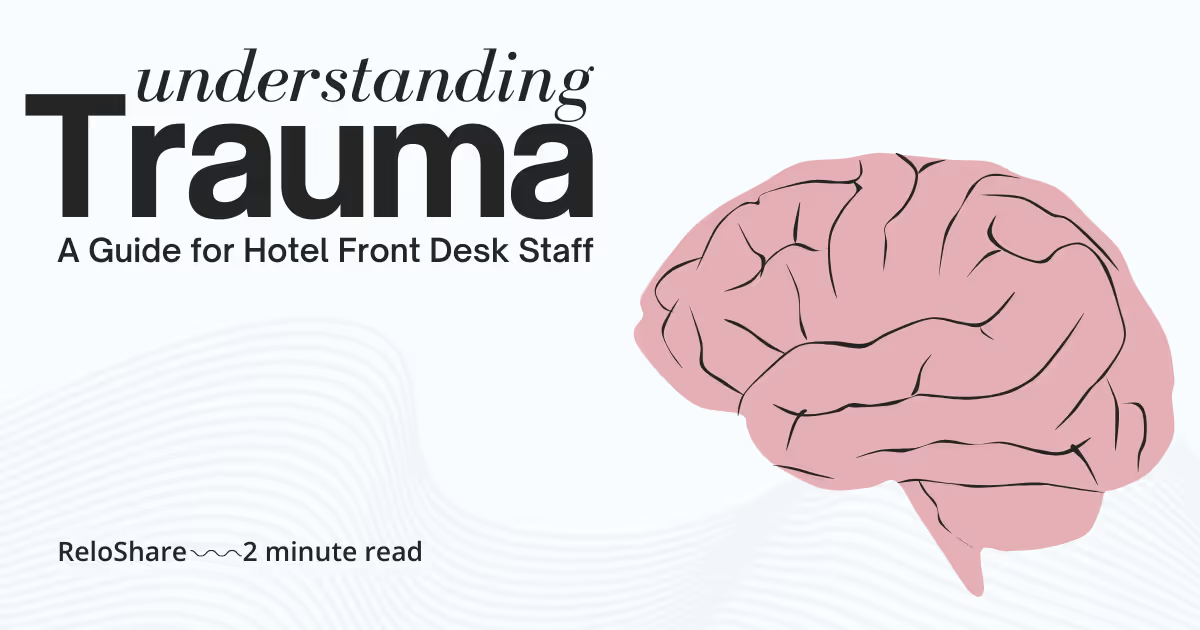For most, hotels are synonymous with relaxation, a break from daily life, and a chance to rejuvenate. However, for some guests, hotels may be a temporary haven from a crisis. As the hotel's frontline, the front desk staff play a pivotal role in shaping guests' experiences. But have you ever considered that some of these experiences might be colored by personal traumas?
Welcome to our guide that aims to help front desk staff understand trauma, recognize its signs, and offer empathetic support to guests who might be in distress.
What is Trauma?
Trauma is an emotional, physical, or psychological response to adverse events, which can range from natural disasters and accidents to abuse and loss of loved ones. The effects of trauma can be long-lasting, manifesting in various ways depending on the individual's unique experiences.
Why Does Understanding Trauma Matter?
- Guest Experience: As the first point of contact, front desk staff significantly impact a guest's overall hotel experience. Recognizing signs of trauma can guide your interaction, ensuring it's supportive and sensitive.
- Building Loyalty: Effective handling of sensitive situations can transform challenging encounters into loyalty-building moments.
- Safety: Recognizing signs of trauma can lead to more timely interventions, potentially preventing dangerous situations.
Signs of Trauma:
Recognizing distress is critical. Signs might include anxious behaviors, emotional outbursts, or withdrawal. Traumatization, as explained by Dr. Bessel van der Kolk, occurs when internal and external resources are inadequate to cope with an external threat. A clear example is the varied responses to traumatic events, like accidents. While some may showcase severe trauma symptoms, others might emerge relatively unaffected.
Being Trauma-Informed:
Understanding trauma is not about diving into every guest's personal story but about recognizing that heightened emotions might stem from past experiences. Here's how you can be trauma-informed:
- Depersonalize Situations: Reframe your perspective. Instead of taking things personally, empathize and consider what might be affecting the guest.
- Validate and Empathize: Acknowledge their feelings and concerns.
- Maintain Professional Boundaries: It's essential to avoid offering unsolicited advice or sharing personal traumas. Focus on their needs, and offer help within your professional capacity.
De-Escalation in Action:
Consider a guest upset over a payment issue. Instead of getting defensive or dismissive, approach the situation with patience and care. Offer solutions, reassure the guest of their safety, and assist in any possible way.
Importance of Communication:
Clear communication is vital, especially when dealing with traumatized guests. This includes:
- Speaking Clearly and Calmly: Maintain a soothing tone.
- Using Active Listening: Respond with empathy.
- Being Patient and Respectful: Understand they might need time.
- Offering Assurance: Let them know you're there to support them.
If a guest discloses a traumatic experience:
- Offer a Private Space: Ensure they feel safe discussing their concerns.
- Stay Calm and Offer Solutions: Whether it's a different room or assistance contacting support services, ensure the guest feels supported.
- Maintain Confidentiality: Assure them of their privacy.
For front desk staff, you have the power not just to facilitate a reservation, but to provide a safe space, understanding, and support in times of crisis. So, stay informed, stay empathetic, and make a difference!
Thank you for joining us in building a hotel environment that prioritizes empathy and understanding.

